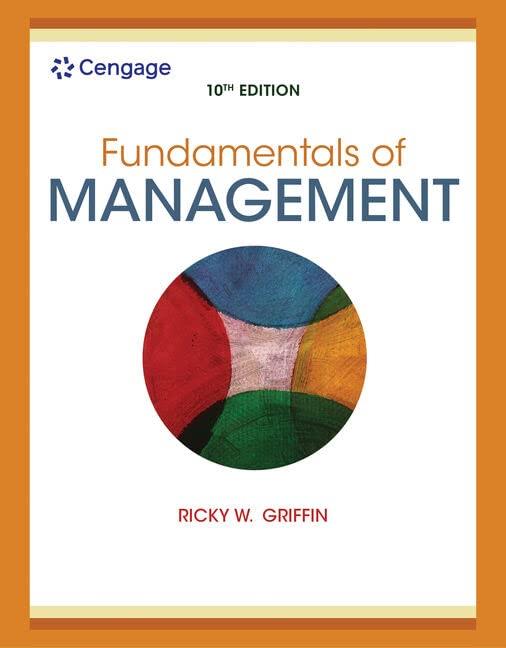More than 70 percent of the worlds supply of cacao beans comes from small family farms scattered
Question:
More than 70 percent of the world’s supply of cacao beans comes from small family farms scattered throughout several small West African nations, including Ivory Coast and Ghana. These farmers, their families, and hired hands toil long hours to produce the magical beans that are used to produce cocoa. In the past two decades, however, advocacy groups and consumers have become increasingly aware of a particularly disturbing business practice prevalent on some of these farms—the use of child slave labor.
In countries such as Ivory Coast, one-half of the country’s exports are cocoa. Cocoa farmers often earn less than the poverty level, even with the use of child and slave labor.
Cocoa is an extremely unstable commodity—global prices fluctuate significantly. Along with price instability, profit ability depends on factors over which farmers have no control, such as drought and crop disease. To improve their chances of making a profit, cocoa farmers look for ways to cut costs, and the use of slave and child labor is one of the most effective money-saving measures. This is where the idea of “fair trade” comes in. Fair trade refers to programs designed to ensure that export-dependent farmers in developing countries receive fair prices for their crops. Organizations such as TransFair USA monitor and certify that farmers supplying cocoa products are paid fair prices, while paying their employees reasonable wages and providing a safe and environmentally friendly workplace. While many fair-trade products are also organic this is not a requirement for certification by Transfair USA. However, the organization does ban the use of genetically modified organisms (GMOs) and encourages farmers to limit their use of pesticides and fertilizers.
A 3.5-ounce candy bar labeled fair trade may sell for $3.49, compared to about $1.84 for one that’s not. Why so much? Because the fair-trade candy bar, says TransFair USA spokesperson Nicole Chettero, occupies a niche market. She predicts, however, that, “as the demand and volume of Fair Trade–certified products increase, the market will work itself out. . .. [R]etailers will naturally start to drop prices to remain competitive.” Ultimately, she concludes, “there is no reason why fair-trade [products] should cost astronomically more than traditional products.”
Some critics of fair-trade practices and prices agree in principle but contend that consumers don’t need to pay such excessive prices, even under current market conditions. They point out that, according to TransFair’s own data, cocoa farmers get only 3 cents of the $3.49 that a socially conscious consumer pays for a Fair Trade–certified candy bar. “Farmers often receive very little,” reports consumer researcher Lawrence Solomon. “Often fair trade is sold at a premium,” he charges, “but the entire premium goes to the middlemen.”
Critics like Solomon suggest that sellers of fair-trade products are taking advantage of consumers who are socially but not particularly price conscious. They point out that if sellers priced that $3.49 candy bar at $2.49, farmers would still be entitled to 3 cents. The price, they contend, is inflated to $3.49 simply because there’s a small segment of the market willing to pay it. Fair-trade programs, advises English economist Tim Harford, “make a promise that the producers will get a good deal. They do not promise that the consumer will get a good deal. That’s up to you as a savvy shopper.”
Divine Chocolate is a company that is taking fair-trade cocoa to the next level. Unlike other companies selling fair trade chocolates, Divine returns a share of their profits to the farmers in their supply chain. Divine’s largest shareholder group is Kuapa Kokoo, a fair-trade cocoa cooperative. Cocoa farmers who belong to this group not only receive a fair trade price for their cocoa but also receive dividends from the profits of Divine Chocolate.
Case Questions
1.While Divine Chocolate has embraced the concept of fair trade, their products are not organic. On their web site, they argue that purely organic production methods could result in greater instability in production because cocoa is very disease-prone. Do you think that Divine has an ethical obligation to require farmers to become organic? Why or why not?
2. How would you describe Divine Chocolate’s approach to social responsibility? How do they balance their responsibilities to their stakeholders?
3. Do you pay attention to fair-trade products in your own purchasing behavior? For what kinds of products might you be willing to pay a premium price to help those who produce the ingredients?
4. Under what circumstances might fair trade actually cause harm? To whom? At what point would fair-trade trade-offs no longer be acceptable?
Step by Step Answer:






